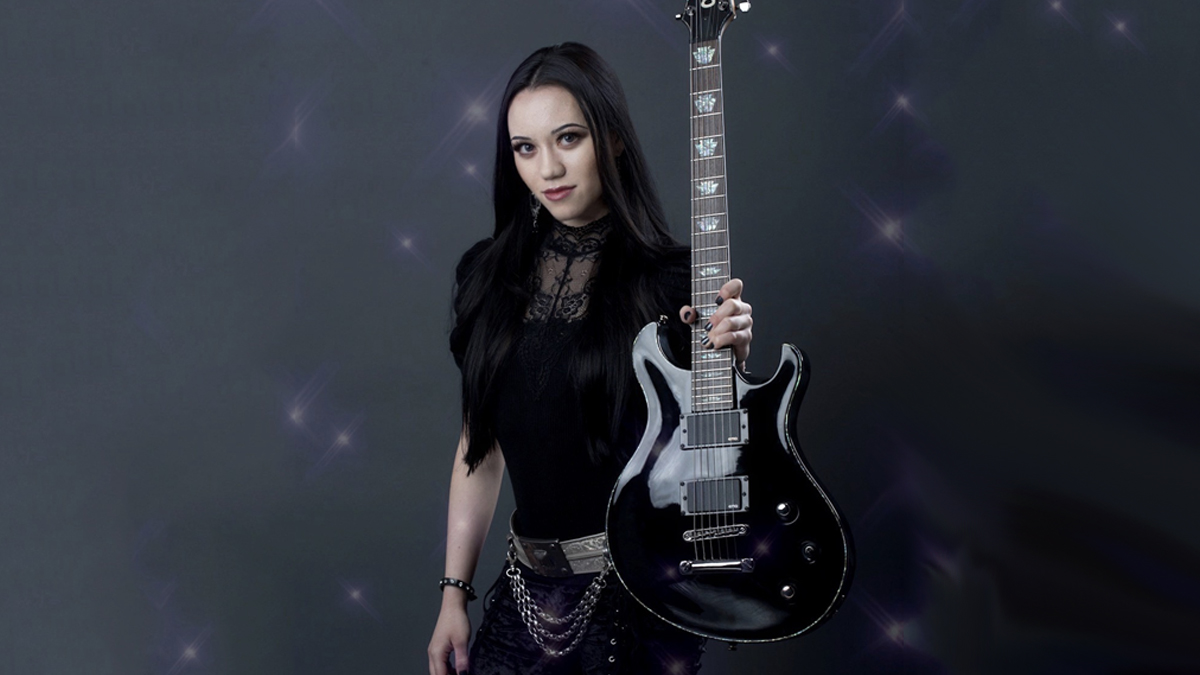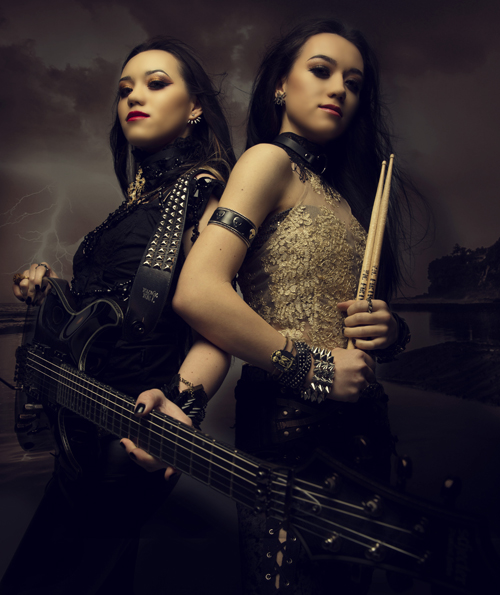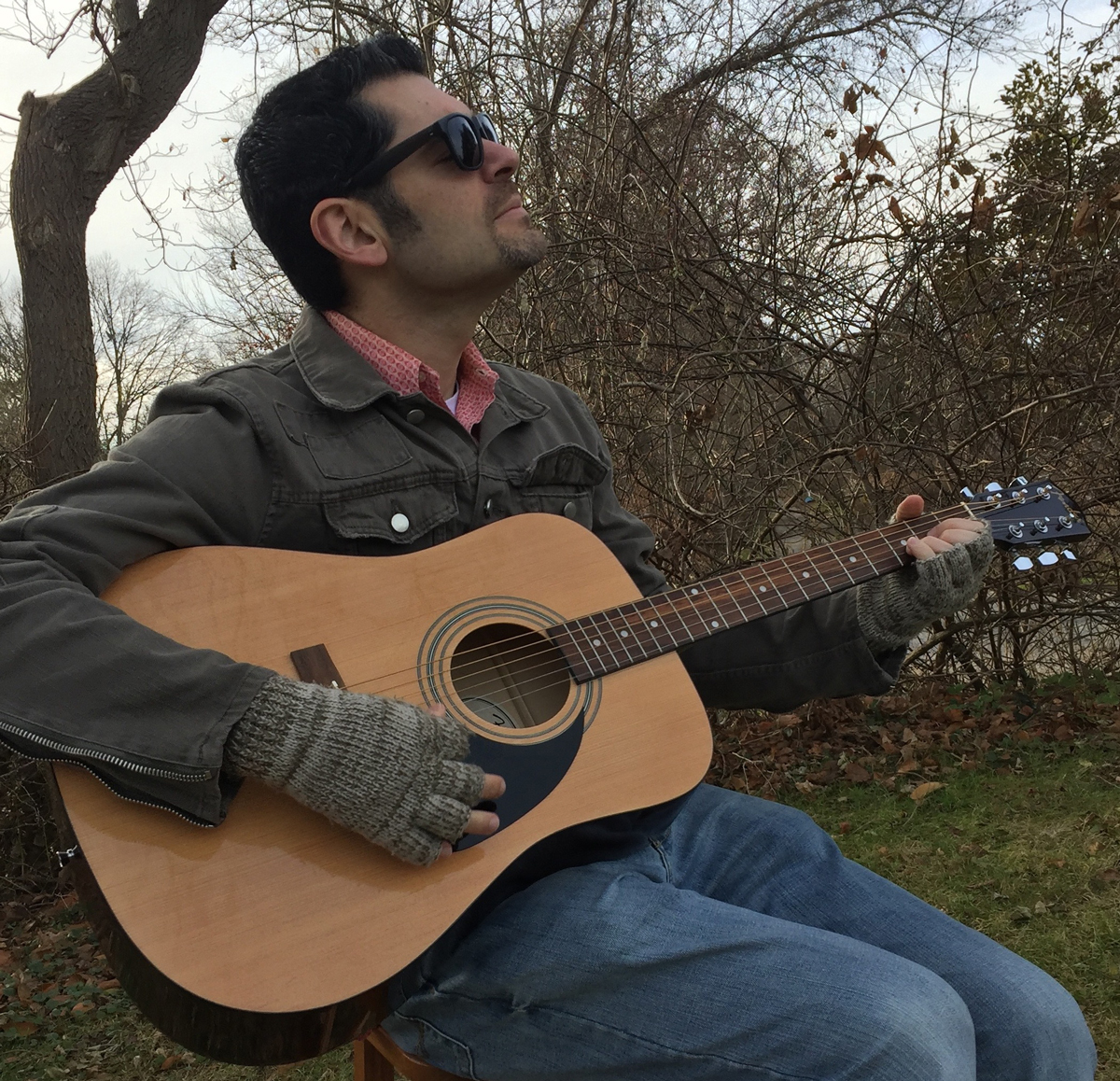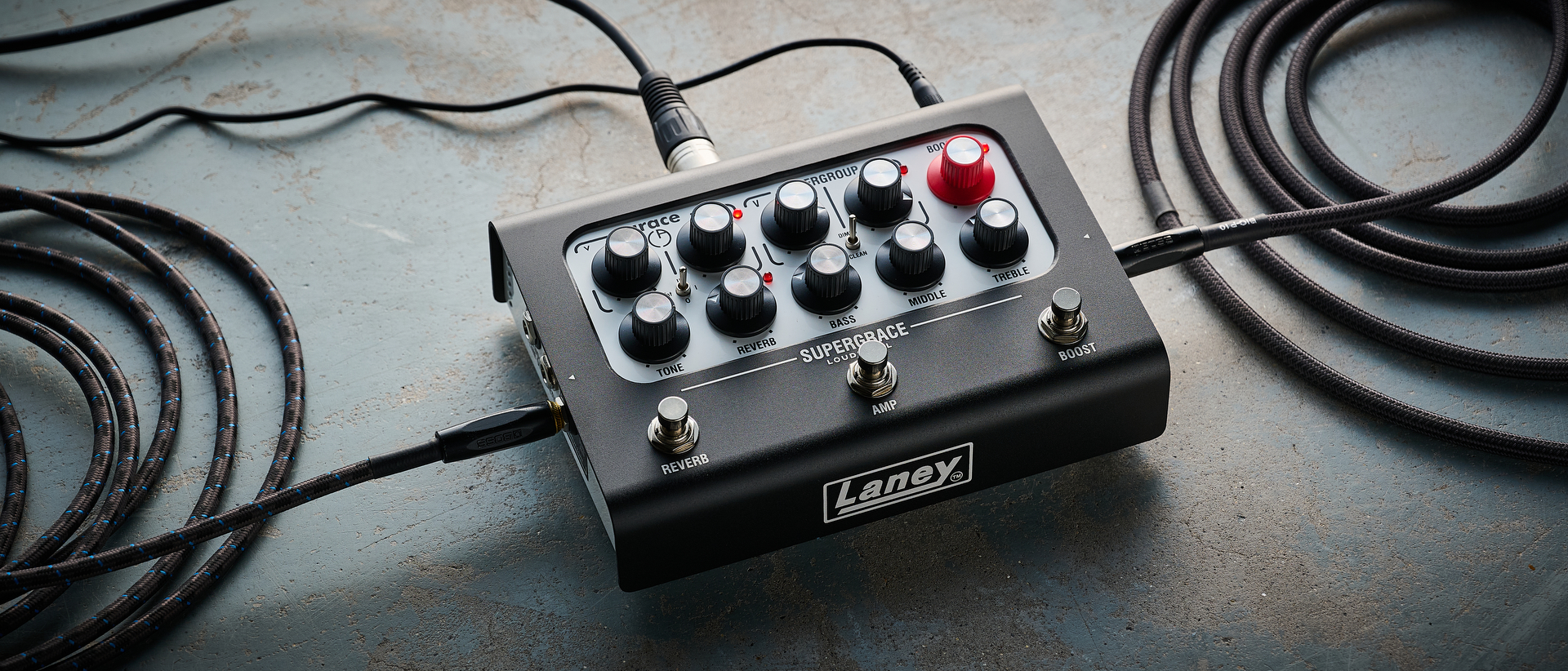Dianthus guitarist Jackie Parry on balancing soloing with songwriting and how classical piano informs her guitar approach
Introducing the Charvel Desolation-wielding player, who performs with her twin sister in the wide-reaching metal outfit

All the latest guitar news, interviews, lessons, reviews, deals and more, direct to your inbox!
You are now subscribed
Your newsletter sign-up was successful
Few, if any, of today’s crop of metal bands feature twin sisters, and that’s certainly one of the things that help Dianthus stand out from their contemporaries. That, and a heavy sound that incorporates elements of classical, prog, and goth, which is on display throughout recently released sophomore effort, Realms.
Comprising Jackie and Jessica Parry (on vocals/guitar/bass and drums/backing vocals, respectively), Dianthus hails from Riverside, California, and in 2020 they issued their debut album, Worth Living For.
Due to the pandemic, the band were unable to tour the album, but utilized the unexpected time off to work on a followup effort. Produced by Steve Evetts (whose credits include the Dillinger Escape Plan, Symphony X, and Butcher Babies, among others), Realms shows the duo further honing their style and approach – a development that's especially evidenced on the album’s hard-hitting title track and lead single.
Parry spoke to Guitar World shortly after the release of Realms to discuss her go-to guitar setup, the importance of maintaining a practice routine and what it's like being in a band with her twin sister.
Guitar-wise, how does Realms differ from Dianthus' debut album?
“The new album is more of a conceptual album. With Realms, and with the pandemic, we had lots of time to experiment with stuff. We recorded to a click track this time round, unlike our debut album, and it’s a very progressive, very classical album compared to the last record.
“In the studio, since I had lots of time, I was able to experiment with harmonies, and use some different pedals in the studio with Steve Evetts. The sound is still very ‘Dianthus,’ but the guitars are pushed more forward in the mix. They're still very raw, but more organized.”
All the latest guitar news, interviews, lessons, reviews, deals and more, direct to your inbox!
Which songs are you most proud of from a guitar perspective?
“I would probably have to say the very first song, the title track – that was the first song we wrote for the album – and the last track, Secrets and Promises.
“For the title track, there are lots of different moods. In the beginning, there are some harmonies that are very angelic-sounding, and then, when it breaks into that heavy part, it totally switches up the mood.
“With Secrets and Promises, it’s very fast-paced with the drums. My sister and I had a lot of fun writing that one, too. Just the mood of that song is a lot of fun to play.”
On the album, does anyone else play besides you and Jessica?
“It’s actually both of us. We write all the parts – guitar and bass. The synth we share, and the piano, since we grew up together with that. I do all the guitars – the bass, lead guitars, and rhythm guitars – then she’ll do the backing vocals, drums, and some synth and piano.
“For live settings, we have session players. On bass guitar, we have Gavin Carney, and on guitar, we have Doug Weiand. Both are from California.”

Is the songwriting also a collaboration between you and your sister?
“Pretty much, but it depends. Sometimes, she’ll have an idea for the whole song, and I’ll just contribute in small parts when needed. But sometimes, I’ll have the whole foundation for a song, and she’ll jump in. So, it’s kind of different, but it’s been mostly equal for this album.
What does your guitar setup include?
“I play the same model guitar, but I play two of them and they’re different colors – black and red. I love to play Charvel guitars, but it’s actually a discontinued model that they have. It’s called the Charvel Desolation and it has EMG pickups. It's super-light and it sounds great.
“I run it through a Mesa/Rectifier Badlander head. I think it’s one of the new models that they have, and it sounds really great. As for cabinets, I have also used the Marshall 1960 Lead 4x12.
“For pedals, I have a Boss tuner, and I have an Ernie Ball 40th Anniversary Volume pedal. I also use a ISP Decimator II noise gate, which works out great, and I've got a Fortin Grind pedal – it’s a channel switcher and a built-in boost. The last pedal I have is a Boss DD-3 Digital Delay.”
When did you start playing guitar?
“I started at 14, at the middle school/high school age. My sister and I started off with classical piano, and at the age of 14, we transitioned into a rock school: that was the beginning of everything for us. The school was called West Coast Rock School. Its not around anymore, but it kind of merged with Rockstars of Tomorrow.”
How did first learning classical piano affect your guitar playing?
With electric guitar, it’s easy to just rock out and not really think about what you’re doing. Playing classical piano taught me to think about the notes more and about dynamics
“I think with classical piano, it taught me to think more about the notes and about dynamics. Because with electric guitar, it’s easy to just rock out and not really think about what you’re doing and just have fun sometimes. With classical music, it taught me to have breaks between that.
“You kind of hear that in our songs, especially in Realms. There are different moods – kind of a classical-sounding guitar with harmonies in the intro, then it breaks up into the verse. It goes up and down, just like classical music.”
Who are some of your guitar influences?
“I’d have to say they’re mostly guitar players who also sing. The first one that really influenced me was Matt Tuck from Bullet for My Valentine, but there's also Alexi Laiho from Children of Bodom, James Hetfield from Metallica, and Joe Duplantier from Gojira.”
Do you still follow a practice routine for guitar?
“I do. It starts with a warm-up. I think it’s important to warm up every time you play an instrument. I’ll run through some scales, and maybe do some non-musical type of warm up, like hammer-ons and pull-offs. I'm not worried about playing in any key; it’s more about ‘waking up the fingers.’ After that, I’ll jump into our songs – that’s always good to refresh on – then I move on to other concepts.”
Is it important for you to balance soloing and songwriting?
“Totally. Thinking about our music, I love playing solos and doing certain leads on top of the music, but I think it’s important – with anything – to have balance. That way, you’re not boring the listener and you’re keeping things fresh.”
What are your thoughts on modern-day metal guitar?
It's really cool to see how metal guitar has changed over time. It’s really amazing how the guitar tones have evolved
“I love modern day metal guitar. It’s really cool to see how it’s changed over time, compared to the very early stages of bands like Black Sabbath, to modern bands now, such as Lorna Shore. It’s really amazing how the guitar tones have evolved. I’m a huge fan of it.”
What are Dianthus’s touring plans?
“We are still trying to work it out, but you can definitely expect some dates in California, for sure. We will keep everyone updated on our website, and our label’s site. We want to tour soon. It’s been hard with the pandemic, but hopefully we can make it happen.”
- Realms is available now via Deko Entertainment.
Greg is a contributing writer at Guitar World. He has written for other outlets over the years, and has been lucky to interview some of his favorite all-time guitarists and bassists: Tony Iommi, Ace Frehley, Adrian Belew, Andy Summers, East Bay Ray, Billy Corgan, Alex Lifeson, Geddy Lee, Les Claypool, and Mike Watt, among others (and even took lessons from John Petrucci back in the summer of ’91!). He is the author of such books as Grunge Is Dead: The Oral History of Seattle Rock Music, Shredders: The Oral History of Speed Guitar (And More) and Touched by Magic: The Tommy Bolin Story.

